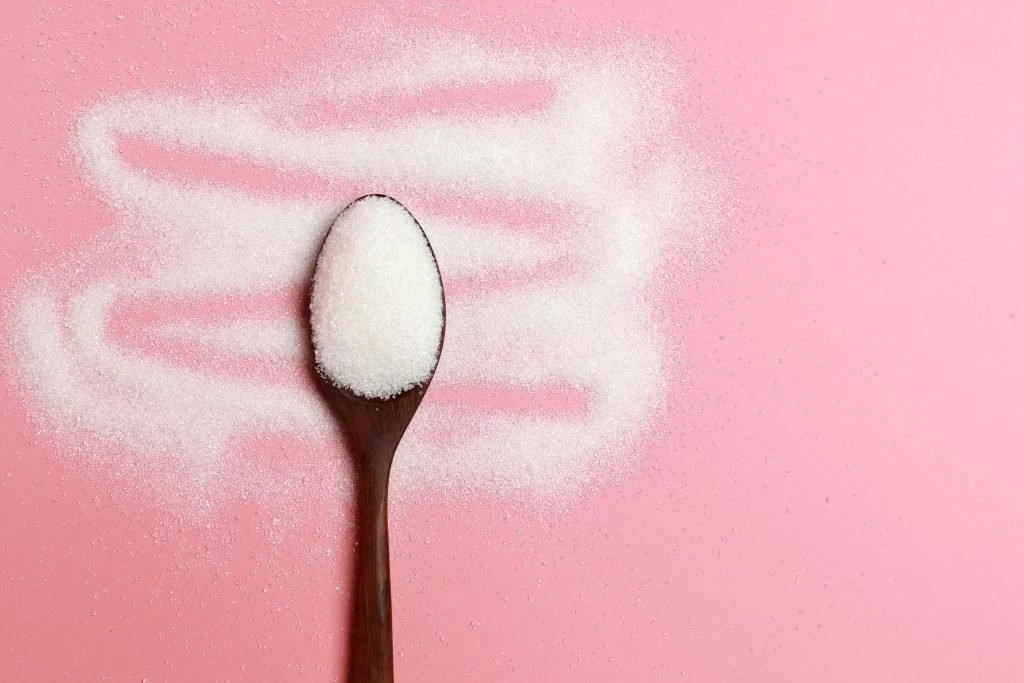23rd January 2020
Rory Larkin (ANutr) tells us everything we’ve ever wanted to know about sugar consumption
Sugar consumption is a hot topic and it’s frequently under the firing line in the media. However, there are so many misconceptions surrounding the subject, not helped by terms such as natural, refined, unrefined and added sugar which can be hard to unpick. Believe it or not, sugar isn’t necessarily as detrimental to our health as is sometimes portrayed.
The main issue surrounding sugar is that too much added sugar in the diet can lead to tooth decay, which is particularly harmful in children who generally prefer sweeter foods. The dentine – located beneath enamel – on children’s teeth isn’t as well formed as adults, which can lead to an increased chance of decay, too. Have we all seen that dentist scene in Jamie Oliver’s Sugar Rush?
Aside from the serious implications on your teeth, the negative health issues associated with overconsumption of sugar are obesity and an increased risk of developing type 2 diabetes.
Some of our favourite foods and snacks are often high in sugar and easily overconsumed without realising it. These calorie-dense foods are often nutritionally poor – lacking fibre and vitamins – but they are usually not very filling. This means a diet high in added sugar can often result in weight gain, while not supplying us with the micronutrients we need to function at our best.
According to government guidelines, adults should consume no more than 30g of added sugar a day (SACN, 2015). Added sugars are any sugars added to foods during processing that directly impact on flavour, structure or shelf life. This includes everything from white or brown sugar all the way to syrups such as agave nectar, molasses, treacle and yes, even honey!
Foods that do not count towards the 30g limit of added sugar are:
- All fruit and vegetables
- Fresh
- Frozen
- Dried (unsweetened)
- Tinned (not in syrup)
- Unsweetened milk and yoghurt
- Dairy products such as these contain sugar – in the form of lactose – which, due to its structure, is not considered to have the same potential negative effects on teeth.
Foods which do count towards the 30g limit are everything from sweets, cakes, syrups and even fresh juices and smoothies. While the latter two are considered healthy overall, the blending or juicing process can make them far easier to overconsume. Juicing also removes much of the beneficial fibre from the fruits and vegetables, making smoothies a better choice.
To get around the ‘no added sugar’ claim, many manufactures will purée dried fruits such as dates and raisins or reduce fruit juices into thick syrups which unfortunately yield a very similar result to eating sugar – making them the same as added sugar, albeit with some extra fibre and vitamins.
Understandably this can all lead to confusion and, therefore, there are many buzzwords used in the food industry today such as ‘no refined sugar’, giving the product a perceived health halo, which can possibly result in overconsumption in some individuals.
At the end of the day, moderation is key! The occasional bag of sweets won’t result in negative long-term health outcomes. However, it’s worth being mindful of how much sugar we’re consuming as The National Diet and Nutrition Survey (NDNS, 2016) states that we’re consuming nearly twice (57g) the recommended amount.
If you’re consuming more sugar than is recommended and want to cut down your intake, one way to do this is to avoid all products containing added sugar. This is a very difficult approach, however – if you’re used to lots of added sugar in your diet, this may result in an overly-restricted diet which is unnecessary and void of joy, even if done under the supervision of a health professional. Below is a more realistic list of small changes we can all make to reduce our consumption, bringing us closer to current guidelines.
- Choose sugar-free or diet soft drinks over full-sugar versions
- Try swapping sugar in tea and coffee to granulated sweeteners – evidence suggest these are perfectly safe at levels contained with these products
- Sweeten dishes with fresh fruit over compotes, honey or syrups
- Look for reduced-sugar versions of your everyday favourites such as baked beans, ketchup, jam and ice cream
References:
Scientific Advisory Committee on Nutrition (2015). Carbohydrates and Health. London: The Stationery Office Limited.
National Diet and Nutrition Survey. Results from Years 7-8 (combined) of the Rolling Programme (2014/15 to 2015/16)




